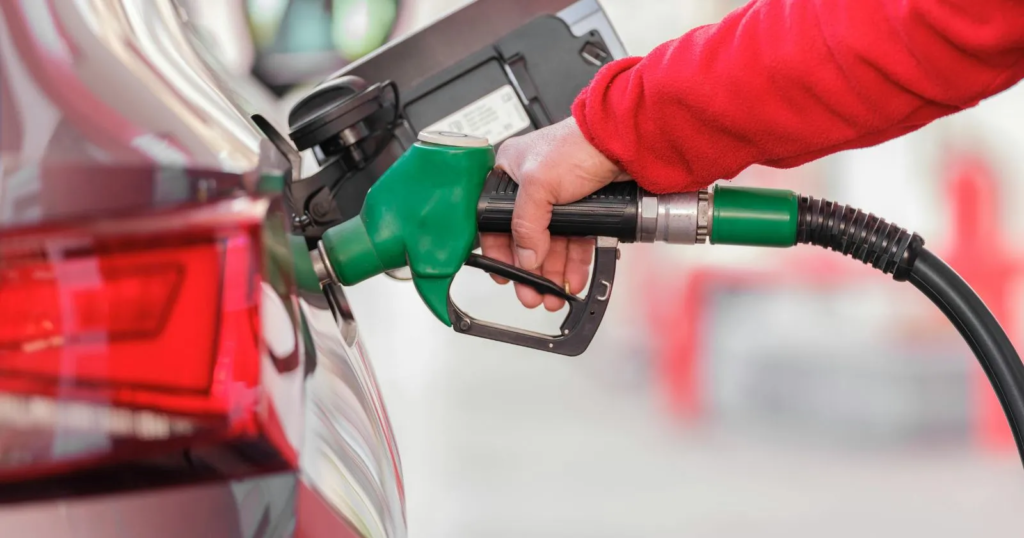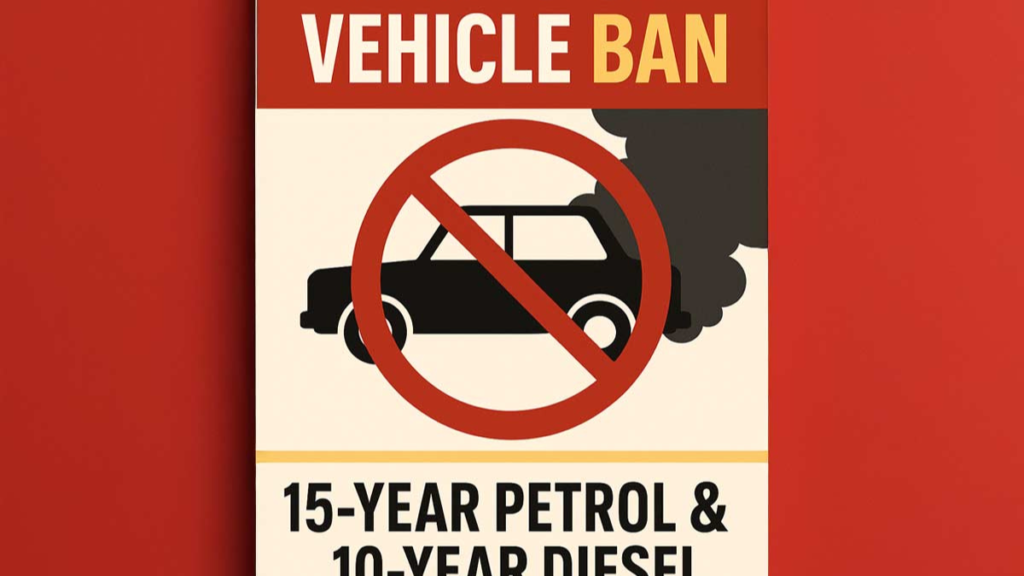New Delhi | July 2025
As Delhi intensifies its war on pollution, a new battle has emerged—not on the roads, but in the courtroom. In a dramatic legal confrontation, the Delhi Petrol Dealers Association (DPDA) has moved the Delhi High Court challenging recent enforcement actions taken against fuel pump operators for allegedly refuelling end-of-life vehicles (ELVs). The petition highlights what petrol dealers describe as an “unfair and impractical enforcement regime”, where private businesses are being criminally prosecuted for what they argue is the State’s responsibility.
The legal action has triggered a city-wide debate on air quality, responsibility, and the limits of government regulation. At the heart of the controversy is Delhi’s July 1 enforcement of a ban on refuelling petrol vehicles older than 15 years and diesel vehicles older than 10 years, in accordance with guidelines from the Commission for Air Quality Management (CAQM) and court mandates.

🚫 The Policy Trigger: What Does the End-of-Life Vehicle Refuelling Ban Entail?
Delhi, long infamous for its choking air pollution, has adopted a series of aggressive measures to curb vehicular emissions—the single largest contributor to ambient particulate matter (PM 2.5 and PM 10). The refuelling ban on ELVs, enforced starting July 1, 2025, prohibits any fuel station in the National Capital Territory (NCT) from providing petrol or diesel to vehicles that have crossed the prescribed age limits.
This policy, though praised by environmentalists and regulators, has placed an unexpected burden on petrol pump owners, who now find themselves liable for criminal prosecution under Section 192(1) of the Motor Vehicles Act, 1988, for serving fuel to non-compliant vehicles.
⚖️ The Legal Challenge: What Are the Petrol Dealers Arguing?
Representing hundreds of city fuel retailers, the DPDA has petitioned the Delhi High Court for relief. In their plea, they argue the following:
- Lack of Statutory Responsibility:
The Motor Vehicles Act and the Environment Protection Act do not explicitly authorize fuel stations to enforce registration-based bans. According to the DPDA, it is the duty of the State—via traffic police or transport officers—to identify and stop illegal vehicles, not private vendors. - Absence of Necessary Tools:
The government’s Standard Operating Procedure (SOP) requires pump staff to use ANPR (Automatic Number Plate Recognition) cameras and vehicle databases to identify ELVs. However, many petrol stations report not having received any of this equipment, nor any training on how to use such tools. - Risk of Conflict and Violence:
Fuel pump operators say they’ve been verbally abused and threatened by vehicle owners when asked to leave for driving ELVs. Without a legal mandate to deny service, many pump employees feel vulnerable to public backlash and physical assault, especially during busy refuelling hours. - Unlawful Delegation of State Power:
By placing law enforcement burdens on fuel retailers, the DPDA argues the government has engaged in “illegal delegation of sovereign functions”, thereby violating basic constitutional protections under Article 19(1)(g)—which guarantees the right to practice any profession or carry on any occupation, trade, or business.

👩⚖️ Court Response: A Glimmer of Relief for Retailers
The case was heard on July 2, 2025, by Justice Mini Pushkarna, who issued notices to the Delhi government, the Commissioner of Transport, and the Delhi Pollution Control Committee (DPCC), seeking their response. The court clarified that any adverse action against the petitioners in the interim could be brought to the court’s attention, offering some relief to petrol pump owners facing ongoing prosecutions.
The next hearing has been scheduled for September 8, 2025, where the State is expected to justify the legal basis for penalizing private vendors under criminal provisions typically reserved for road users.
🛑 Ground-Level Challenges: Confusion, Enforcement Gaps, and Backlash
While the intent of the policy has been largely welcomed, its on-ground implementation has faced major roadblocks:
- Insufficient ANPR Systems:
Many fuel stations have not yet received ANPR cameras or updated ELV detection software, leading to guesswork or manual verification through car documents—something not feasible during peak hours. - Data Gaps:
Vehicle owners with valid fitness certificates (often from other states) are not flagged by Delhi’s local systems, leaving staff uncertain whether to refuel or refuse. In several cases, out-of-state vehicles fall into regulatory grey zones, making enforcement more confusing. - Staff Safety:
The DPDA has formally requested the Delhi Police to deploy civil defence personnel at fuel stations, citing the risk of public anger. They fear that violent altercations may arise if drivers are turned away based on unclear or unverified data. - Revenue and Operational Impact:
Some fuel stations located in older parts of Delhi—where a significant proportion of vehicles are over 10-15 years old—report a 30–40% drop in fuel sales. This is affecting daily cash flow and threatening the financial stability of smaller operators.
🏛️ Delhi Government’s Defense: “We Are Protecting Lives”
The Delhi Transport Department has stood firm on its policy, asserting that air pollution is a public health emergency, and that strict action against high-emission vehicles is necessary. Senior officials argue that:
- The refuelling ban is backed by CAQM, the National Green Tribunal (NGT), and Supreme Court rulings.
- Enforcement at the fuel level is essential to eliminate the operational usage of ELVs that continue to ply despite deregistration.
- SOPs and tech upgrades are being rolled out in phases, and any inconvenience will be temporary.
Authorities have also claimed that a grace period and awareness campaign were already implemented in June, giving enough time for stakeholders to prepare.

🌍 Broader Implications: A Case That Could Shape Environmental Enforcement Across India
Legal experts say this case could have far-reaching implications beyond Delhi. As many Indian cities prepare to implement similar bans on old vehicles, the issue of enforcement responsibility—and the role of private players in environmental regulation—could become a nationwide debate.
If the court finds merit in the DPDA’s argument, it may force states to rethink the design of regulatory frameworks, ensuring that enforcement duties are kept within the domain of the government.
🧾 Conclusion: A Balancing Act Between Climate Action and Business Freedom
Delhi’s crackdown on vehicular pollution is a crucial step in its fight against deteriorating air quality. However, the clash between environmental ambition and enforcement realism is now playing out in courtrooms, boardrooms, and fuel stations across the capital.
As the judiciary prepares to weigh in, the outcome of this case will be closely monitored—not just by petrol pump owners, but by urban policymakers, environmental activists, and citizens nationwide. Can India regulate its way out of pollution without undermining legal norms and business stability?
Only time, and the court, will tell.
You might also be interested in – Autonomous Vehicles (AVs) and Self-Driving Technology: The Future of Transportation


